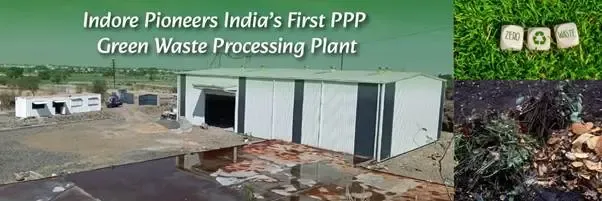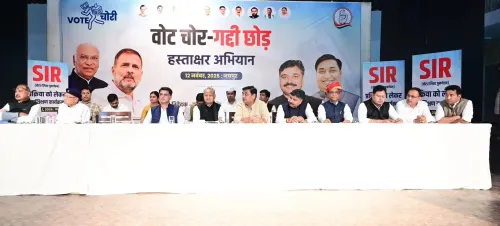Indore to Establish the Nation's First PPP Green Waste Processing Facility

Synopsis
Key Takeaways
- First PPP green waste processing plant in India
- Recycles wood and branches into eco-friendly pellets
- IMC to earn Rs 3,000 per tonne in royalties
- Aims to improve air quality and waste management
- Supports Swachh Bharat Mission-Urban goals
New Delhi, March 18 (NationPress) Under the Swachh Bharat Mission-Urban, Indore is set to unveil the country’s inaugural PPP green waste processing plant that will recycle wooden debris and large tree branches to create pellets, providing a sustainable alternative to coal, an official announced on Tuesday.
This facility will not only manage green waste but also generate income, with the Indore Municipal Corporation (IMC) expected to earn nearly Rs 3,000 per tonne in royalties for supplying wood and branches, as stated by the Ministry of Housing and Urban Affairs.
Spanning 55,000 square feet in Bicholi Hapsi, the plant will convert wood and branches into wooden pellets.
These wooden pellets, derived from green waste, are utilized in various sectors, including the National Thermal Power Corporation (NTPC), where they act as an eco-friendly substitute for energy production and other applications.
Large tree branches in Indore will be diverted to the Green Waste Processing Plant at City Forest, where they will be transformed into valuable products. Furthermore, green waste from major institutions will be directly collected and sent to the facility, operating under a fixed fee structure, according to the statement.
Every day, Indore, a significant financial center of Madhya Pradesh, produces nearly 30 tonnes of green waste—wood, branches, leaves, and flowers. This volume can surge to 60 to 70 tonnes during seasonal changes, particularly in autumn.
The objective of this initiative is to effectively manage green waste, foster environmental sustainability, and generate additional revenue for the municipal corporation, the statement noted.
“It will also be pivotal in enhancing the Air Quality Index (AQI). By advancing waste management practices, this initiative will improve hygiene, mitigate pollution, and prevent unnecessary waste burning, contributing to a cleaner and healthier environment,” the statement added.
“This initiative aligns with the vision of garbage-free cities under the Swachh Bharat Mission-Urban, progressing efforts toward a cleaner, greener, and more sustainable urban environment,” the statement concluded.









